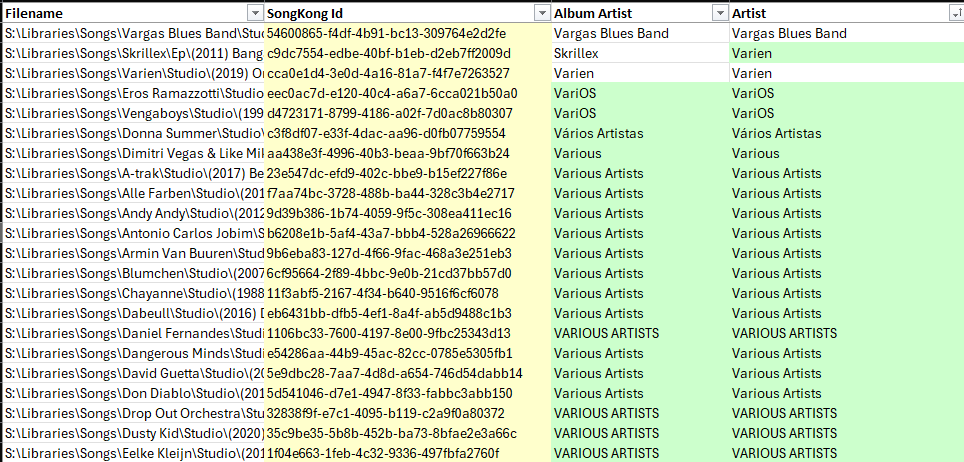Hi, I looked at this last night but Im no longer able to look at the screenshot, the image is too small. Can you repost the original screenshot and also can you please run Create Support Files so I can see the reports ands logs so I can actually see what SongKong has done.
But I can talk in general terms, SongKong doesnt do ISRC lookup they are ignored for matching, most music files don’t contain them. Instead we use Acoustids these are better because they are based on the actual audio, do not require the user to do anything and can directly link the song to MusicBrainz.
However, both ISRCs and AcoustIds are song based, they may identify the song but do not tell you what album the song is on, and most songs are available on multiple albums such as:
- multiple versions of the same album
- original and compilation albums
So both of these methods could help identify the song but not the album. It wasn’t very clear what your screenshot was but I think it was showing Album Artist rather than Artist because in some cases it said Various Artists.
Now SongKong does album based matching where by it groups songs together and only updates them with the album information if all songs could be matched to the album, and this is explained futher in this video tutorial (reason 1)
But I’m guessing you dont have your songs in any kind of album folder structure, either they are all in one folder or they are just in artist folders. So if this is the case and there is no existing album metadata in the song this makes it sort of impossible because you want to match the right album but the song is on multiple albums and there is nothing in your metadata or exsiting folder structure to indicate the correct album. But Im just guessing, please send the support files.
![]()
